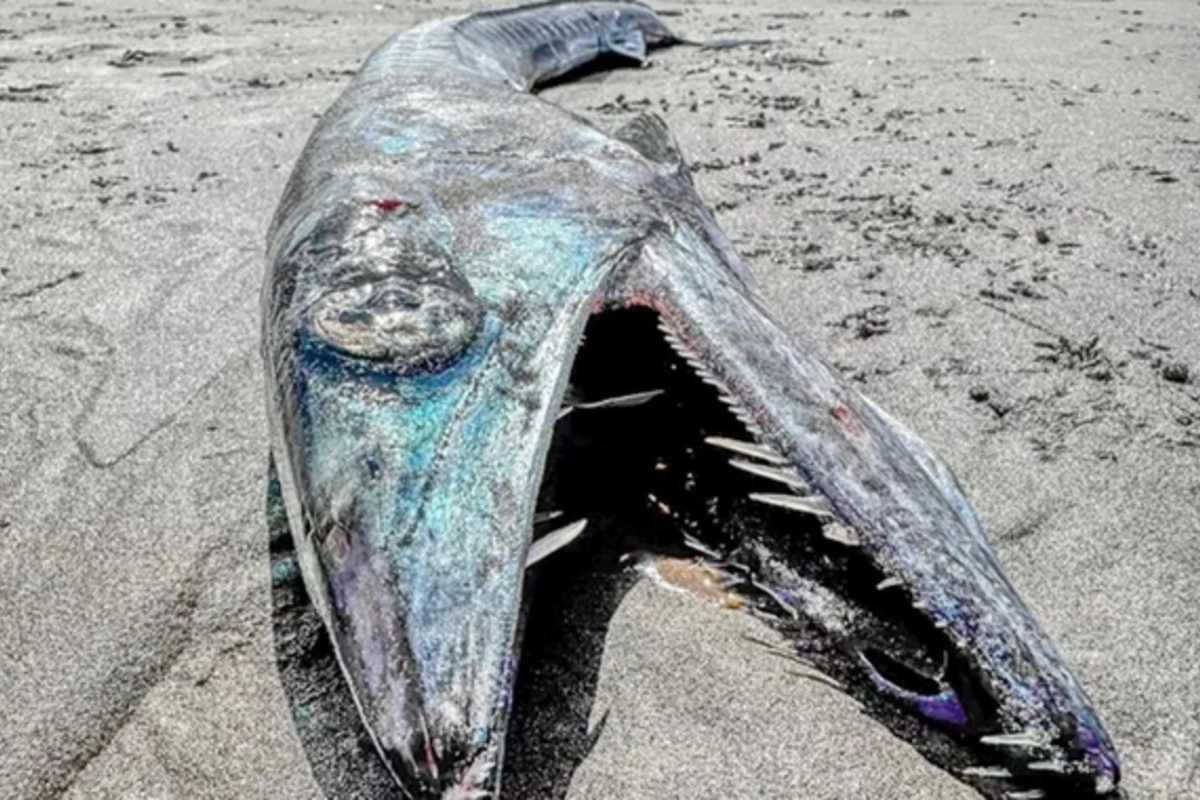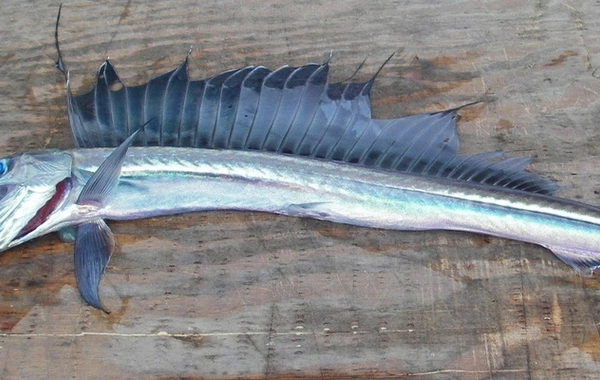30 Apr , 00:21 2025
2

Oregon, USA - April 2025. On one of the beaches near the city of Seaside (Oregon state), local residents encountered a creepy sight - huge fish with fang-like teeth was washed ashore by waves. The creature caused excitement among beachgoers and was captured in photos that quickly spread across social media.
According to the staff of Seaside Aquarium, the find turned out to be nothing other than a longnose lancetfish - a rare deep-sea predator known to scientists for its aggressive nature and tendency toward cannibalism.
An eyewitness named Steve McKenzie, who was walking along the shore with his family, said:
"At first we thought it was a plastic model. It had creepy eyes and sharp teeth, like a piranha, only larger. The children were frightened, and I immediately took a couple of photos".
Another passerby, Brenda Rivers, notes:
"It feels like it just ate someone. Even flies weren't coming to it. I've lived here for 15 years and have never seen anything like this".
According to an aquarium representative, finding a whole lancetfish on land is extremely rare. Usually, the bodies of such fish are quickly eaten by seabirds, especially gulls. But this time scientists got lucky: the specimen was practically untouched.
During the autopsy, the following items were extracted from the fish's stomach:
Undigested squids with beaks
Fragments of small fish
Octopus tentacles
Remains of plastic items
"This indicates that the fish died very recently, and also confirms how omnivorous lancetfish are. They literally consume everything that comes their way," - explained at the Seaside Aquarium laboratory.
Longnose lancetfish prefer warm depths, but periodically migrate to northern waters - including areas of the Bering Sea. They don't appear often along the US coast, but specialists record spikes in their activity every few years, especially after storms or changes in temperature currents.
A similar incident was recorded in California in 2022, but then the fish was half-decomposed. In Oregon, scientists were able to study a fresh specimen and add to their archive of rare findings.
